Ministry of Jal Shakti
Department of Drinking Water and Sanitation, Ministry of Jal Shakti Organises Virtual Workshop on “Sustainability of Drinking Water” under Sujalam Bharat Summit
Virtual Workshop Highlights Source Sustainability and O&M as Priorities in JJM’s Next Phase
States Share Experiences and Best Practices on Source Sustainability – Assam, Gujarat, Uttar Pradesh, Rajasthan, Bihar, Karnataka and Madhya Pradesh Presented
Posted On:
26 SEP 2025 6:24PM by PIB Delhi
As part of the preparatory thematic conference leading up to the Departmental Summit on the Vision for Sujalam Bharat, the Department of Drinking Water and Sanitation (DDWS), Ministry of Jal Shakti, convened a virtual workshop on “Sustainability of Drinking Water” today.
The Sujalam Bharat Summit, guided by the vision of the Hon’ble Prime Minister Shri Narendra Modi, is among six Departmental Summits designed to channel grassroots insights into national policy. Anchored by the Ministry of Jal Shakti and coordinated by NITI Aayog, it seeks to align policy frameworks with field realities. The conference is scheduled for November-end under the Chairmanship of Union Minister of Jal Shakti, Shri C. R. Patil.
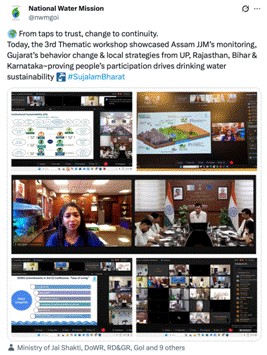
The workshop was graced by Shri Ashok K. K. Meena, Secretary, Department of Drinking Water & Sanitation (DDWS), and chaired by Shri Kamal Kishore Soan, Additional Secretary & Mission Director (SBM(G) & JJM)along with Smt. Archana Verma, Additional Secretary & Mission Director, National Water Mission (NWM). It was attended by State Nodal Officers and Mission Directors, District Collectors/District Magistrates from States/UTs, sector experts, and representatives from development partners. The event saw participation from senior State officials, stakeholders, RWPF partners, and over 300 participants, including officials from DDWS, NWM, and DoWR.
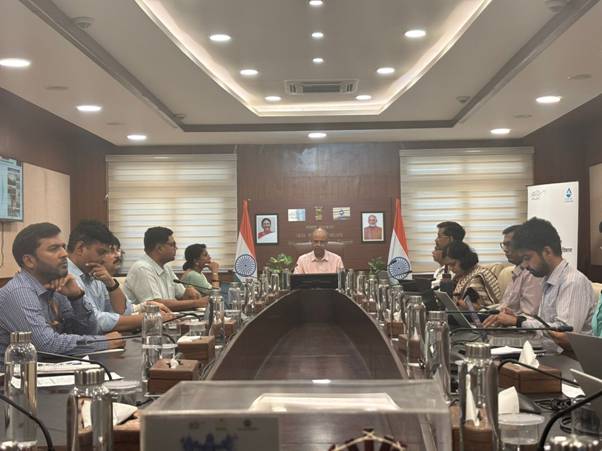
Delivering the keynote address, Smt. Archana Verma described the workshop as an opportunity to deliberate on challenges from the field, identify policy gaps, and explore solutions. She outlined three focal areas for discussion – Source of water, Quality of water, and Operation & Maintenance (O&M). She also emphasised the importance of effective convergence, underlining that MGNreGA funds must be utilised judiciously for water conservation works, in line with the recent amendments, to strengthen the sustainability of drinking water sources.
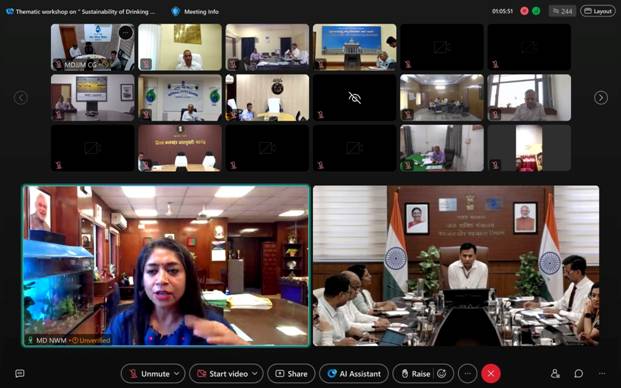
In his context-setting address, Shri Kamal Kishore Soan emphasised that as Jal Jeevan Mission completes six years and enters its next phase, it is crucial to assess whether adequate attention is being paid to source strengthening, source protection, and sustainability of assets. He clarified that sustainability does not merely imply physical or financial aspects, but a more comprehensive concept. He directed States/ UTs to refer to the new amendments made in the MGNreGA guidelines pertaining to water conservation and drinking water issues.
Stressing the need for institutional strengthening, he underlined the role of District Collectors and District Water and Sanitation Missions (DWSMs) in ensuring effective planning, monitoring, and convergence at the district level. He urged States to prioritise O&M of both Single Village Schemes (SVS) and Multi Village Schemes (MVS), and to strengthen institutional mechanisms at the grassroots level through active participation of Sarpanches and Panchayat Secretaries.
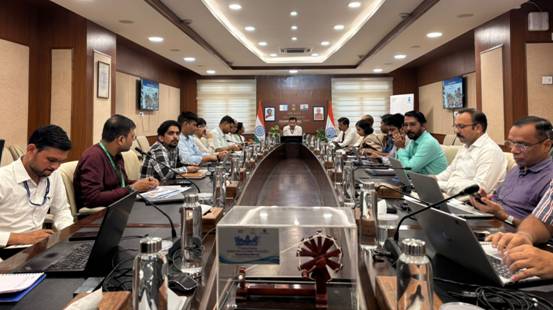
Shri Pradeep Singh, Director, NJJM, DDWS, gave a presentation on the six-year journey of Jal Jeevan Mission, laying down the tone for subsequent deliberations and sharing key milestones achieved under the programme.
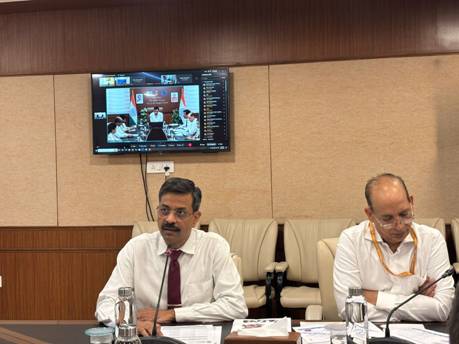
This was followed by a presentation by Smt. Mini Chandran, Scientist D, Central Ground Water Board (CGWB), on the groundwater scenario in India. She covered the status of aquifers, SOPs on groundwater-based source sustainability, CGWB’s activities for drinking water source sustainability, recharge plans at district level, and best practices.
States including Assam, Gujarat, Uttar Pradesh, Rajasthan, Bihar, Karnataka and Madhya Pradesh, presented their experiences, highlighting key achievements, challenges, best practices, progress made, and future plans. In addition, representatives from Biome Environmental Solutions and GuruJal made technical presentations during the workshop.
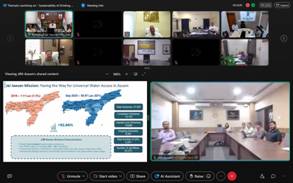
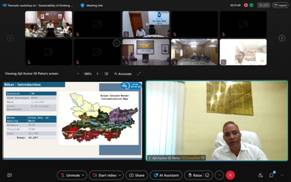
Representatives from VWSCs also shared their field experiences and the challenges faced before JJM. They highlighted how JJM is bringing positive changes to their villages.
An interactive question-and-answer session provided additional insights, enriching the workshop.
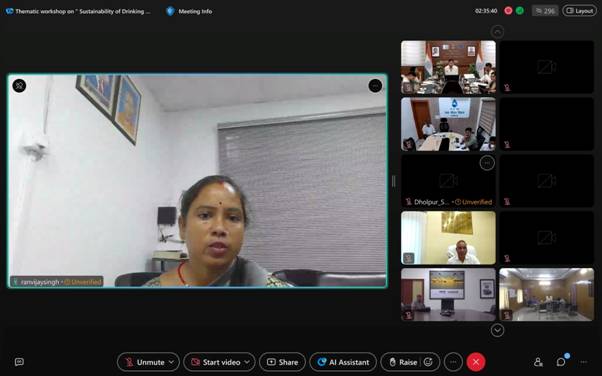
Delivering the concluding remarks, Smt. Archana Verma underlined that the sustainability of drinking water services cannot be delinked from the sustainability of sources. She stressed that every intervention must balance community needs with aquifer recharge, watershed management, and conservation practices to prevent depletion.
Shri Kamal Kishore Soan also congratulated and thanked the participants for their valuable contributions, which enriched the workshop discussions.
The insights of the workshop will contribute to the final State/UT notes and feed into the Sujalam Bharat Summit deliberations, helping shape a roadmap for sustainable water and sanitation management in the country.
***
MAM/AK/SMP
(Release ID: 2171851)
Visitor Counter : 430